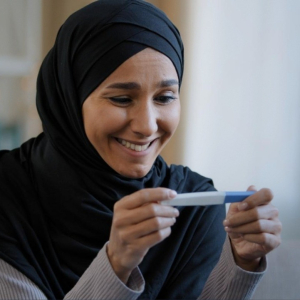Introduction
Infertility is a complex condition that affects millions of couples worldwide, creating not only medical challenges but also emotional, psychological, and social stress. The causes of infertility can be diverse, ranging from hormonal imbalances and reproductive system disorders to male-factor issues or lifestyle-related factors. Given this complexity, effective fertility care requires more than a single-specialist approach.
A clinic for fertility that employs a multi-disciplinary approach brings together experts from various fields to provide comprehensive care. This collaboration ensures that every aspect of a couple’s reproductive health is addressed, offering better diagnosis, personalized treatment, and higher chances of successful conception. In this article, we explore the importance of a multi-disciplinary approach to fertility care, the benefits it offers, and why it is increasingly recognized as the gold standard in reproductive medicine.
Understanding the Multi-Disciplinary Approach in Fertility Care
A multi-disciplinary approach to fertility care involves collaboration among specialists from different medical and supportive disciplines. The goal is to provide holistic, patient-centered care that addresses both the physical and emotional aspects of infertility.
Key elements of a multi-disciplinary fertility team may include:
-
Reproductive endocrinologists and fertility specialists
-
Gynecologists and obstetricians
-
Urologists and andrologists
-
Embryologists and laboratory experts
-
Nutritionists and lifestyle consultants
-
Psychologists and mental health counselors
-
Genetic counselors
By integrating the expertise of these professionals, fertility clinics ensure that every aspect of a patient’s reproductive health is evaluated and treated, offering a comprehensive roadmap to conception.
1. Comprehensive Assessment and Diagnosis
Infertility often has multiple contributing factors that require thorough evaluation. A multi-disciplinary team at a clinic for fertility conducts:
-
Detailed medical history reviews for both partners
-
Hormonal profiling and ovulation assessment
-
Ultrasound imaging to evaluate ovarian and uterine health
-
Semen analysis and male fertility assessment
-
Genetic screening for hereditary conditions
-
Lifestyle and environmental evaluations
This thorough assessment allows the team to identify root causes accurately, develop tailored treatment plans, and address hidden or complex fertility issues that might be overlooked in a single-specialist setting.
2. Collaborative Treatment Planning
A key advantage of a multi-disciplinary approach is the development of personalized treatment plans that incorporate input from various experts. These plans may include:
-
Medical interventions: Addressing hormonal imbalances, ovulation disorders, or reproductive system abnormalities
-
Surgical options: Correcting tubal blockages, endometriosis, or varicoceles that affect fertility
-
Assisted reproductive technologies (ART): IVF, ICSI, and embryo freezing, guided by reproductive endocrinologists and embryologists
-
Lifestyle interventions: Nutrition, stress management, and exercise guidance to optimize fertility
This collaborative planning ensures that treatments are comprehensive, evidence-based, and tailored to the couple’s unique needs.
3. Integration of Male and Female Fertility Care
Historically, fertility treatment focused primarily on women, often overlooking male factors. A multi-disciplinary clinic treats infertility as a shared issue, evaluating and addressing both partners:
-
Male fertility specialists examine sperm count, motility, morphology, and hormonal health
-
Female fertility specialists assess ovarian reserve, uterine health, and hormonal balance
-
Joint consultations allow the team to coordinate interventions that enhance overall fertility outcomes
This holistic approach improves the chances of conception by ensuring that all contributing factors are addressed simultaneously.
4. Role of Embryologists and Laboratory Experts
Advanced fertility treatments, such as IVF and ICSI, require precision and expertise in the laboratory. Embryologists play a critical role in:
-
Handling and fertilizing eggs and sperm
-
Monitoring embryo development and selecting the healthiest embryos
-
Performing procedures such as embryo freezing and thawing for future transfers
-
Maintaining laboratory standards to ensure the highest success rates
Collaboration between embryologists and fertility specialists ensures that every technical aspect of assisted reproduction is optimized for success.
5. Emotional and Psychological Support
Infertility often causes significant emotional distress, including anxiety, depression, and relationship strain. A multi-disciplinary fertility clinic integrates psychological support into treatment:
-
Counseling sessions for individuals and couples
-
Stress management techniques to enhance fertility outcomes
-
Support groups and patient education programs
By addressing the emotional aspects of infertility, clinics help patients maintain resilience and well-being throughout treatment, improving overall satisfaction and adherence to therapy.
6. Genetic Counseling and Screening
Genetic factors can contribute to infertility or increase the risk of hereditary conditions. Multi-disciplinary fertility clinics provide:
-
Preconception genetic counseling
-
Screening for chromosomal abnormalities in embryos
-
Guidance on donor gametes if genetic risks are significant
This integration ensures informed decision-making and reduces the likelihood of complications, contributing to healthier pregnancies.
7. Lifestyle and Nutritional Guidance
Lifestyle factors significantly impact fertility. Multi-disciplinary clinics often employ nutritionists and lifestyle consultants who:
-
Recommend fertility-boosting diets and supplements
-
Address weight management and metabolic health
-
Provide guidance on exercise and stress reduction
-
Advise on environmental and occupational factors affecting fertility
Such guidance complements medical interventions and enhances the probability of successful conception.
8. Advanced Fertility Technologies
Multi-disciplinary clinics are often at the forefront of adopting cutting-edge technologies to improve outcomes, including:
-
Time-lapse embryo monitoring for selecting the healthiest embryos
-
Preimplantation genetic testing (PGT) to detect genetic abnormalities
-
Advanced cryopreservation techniques for eggs, sperm, and embryos
-
Minimally invasive surgical procedures to correct reproductive issues
Integration of these technologies across different specialties ensures that patients receive the most effective, evidence-based care.
9. Personalized Patient Care
A hallmark of multi-disciplinary fertility care is personalized attention. Clinics tailor every aspect of treatment to the individual patient, considering:
-
Age and reproductive history
-
Health conditions and prior treatments
-
Personal preferences and cultural considerations
-
Financial and logistical constraints
This patient-centered approach increases engagement, satisfaction, and treatment adherence, ultimately improving success rates.
10. Benefits of a Multi-Disciplinary Approach
The advantages of a multi-disciplinary approach in fertility care include:
-
Higher success rates: Comprehensive evaluation and treatment of both partners improve conception chances
-
Early detection of complex issues: Collaboration ensures no underlying factor is overlooked
-
Streamlined care: Coordinated efforts reduce delays and inefficiencies
-
Holistic support: Emotional, lifestyle, and medical support are integrated for patient well-being
-
Informed decision-making: Patients benefit from the combined expertise of various specialists
These benefits make multi-disciplinary clinics the preferred choice for couples seeking advanced fertility care.
Case Study: Transforming Lives Through Integrated Care
Consider a couple struggling with unexplained infertility for several years. At a clinic for fertility, a multi-disciplinary team conducted comprehensive evaluations:
-
Male partner: sperm motility issues addressed with lifestyle changes and ICSI
-
Female partner: mild endometriosis treated surgically, followed by IVF
-
Emotional support: ongoing counseling to manage stress and anxiety
-
Nutritional and lifestyle guidance to optimize overall fertility
Through coordinated care, the couple successfully conceived, demonstrating the profound impact of multi-disciplinary collaboration on fertility outcomes.
Conclusion
Fertility challenges are multifaceted, requiring an approach that addresses medical, emotional, and lifestyle factors simultaneously. A clinic for fertility that adopts a multi-disciplinary approach provides a comprehensive, patient-centered model of care.By integrating expertise from reproductive specialists, embryologists, genetic counselors, nutritionists, and mental health professionals, multi-disciplinary clinics ensure accurate diagnosis, personalized treatment, and higher chances of successful conception. This collaborative model not only enhances clinical outcomes but also supports couples emotionally, empowering them through the fertility journey.In today’s era of advanced reproductive medicine, a multi-disciplinary approach is no longer optional—it is essential for couples seeking the highest likelihood of achieving their family dreams. By choosing a clinic that prioritizes collaboration, technology, and compassionate care, patients can navigate infertility with confidence, hope, and the best possible outcomes.







